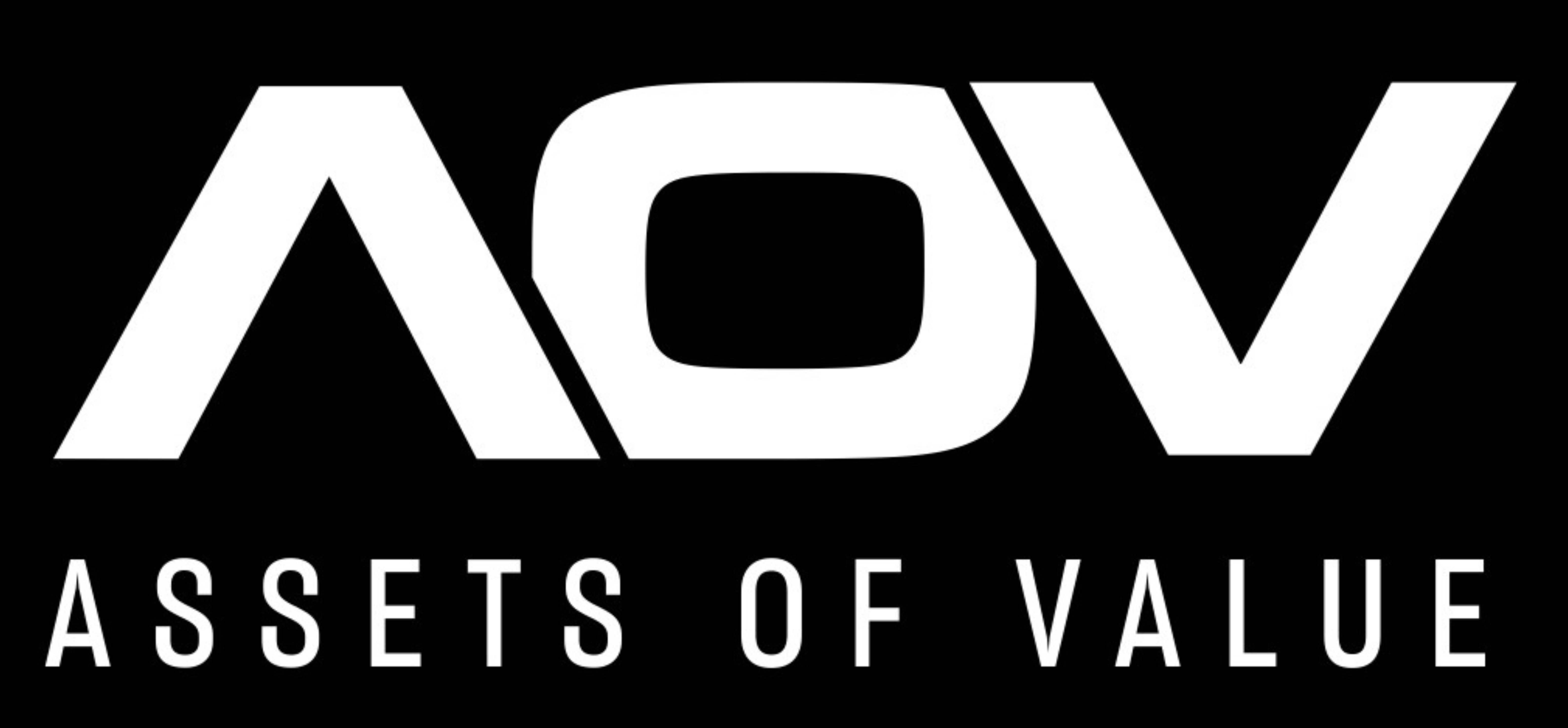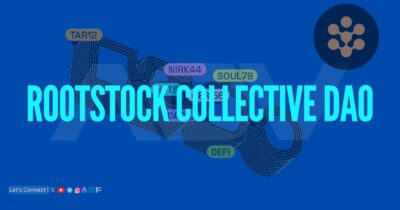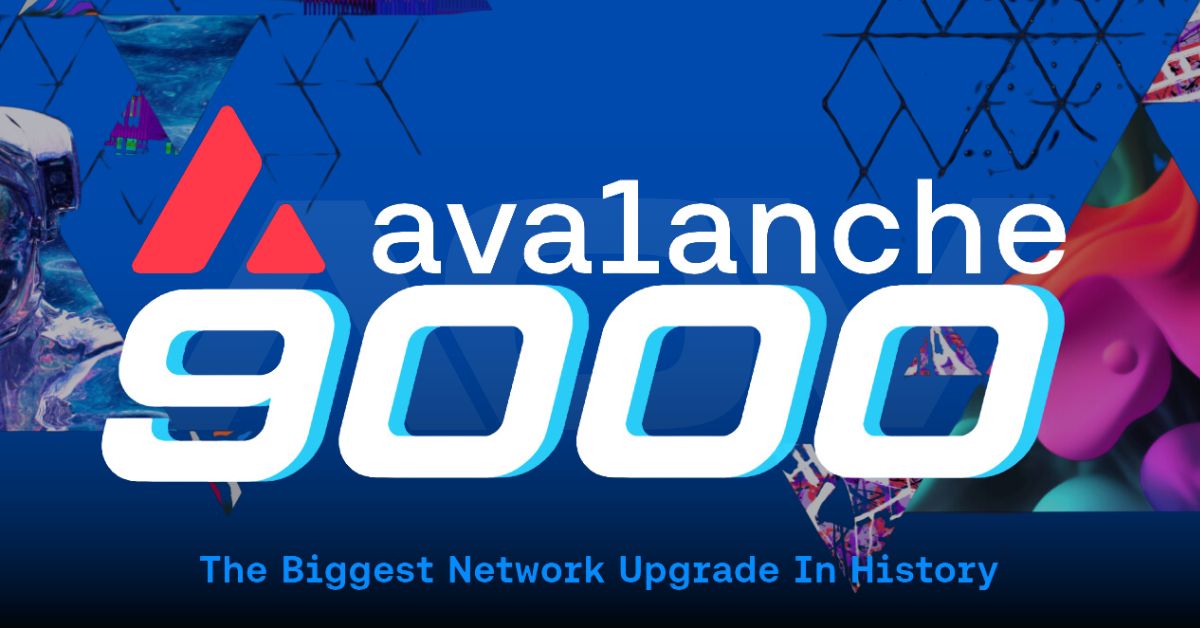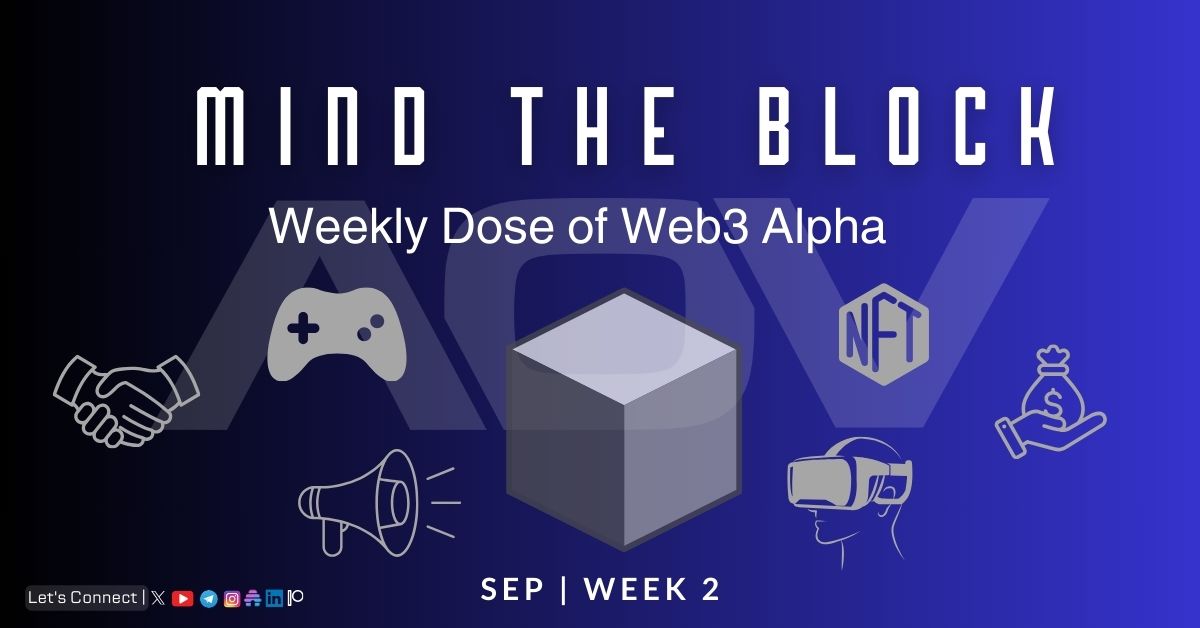In this day and age, privacy and data security have become the talk of the town. A flurry of companies has sprung up, competing to satiate the consumer appetite for privacy. But the enhanced privacy led to compromises on User Experience. But not anymore! Status Network – taking cognizance of this market void, has embarked on a mission to lure privacy enthusiasts by offering a comprehensive suite of services, including private browsing, messaging, and a platform for storing crypto.
In a bid to offer top-notch privacy and security, Status, much like WhatsApp, has end-to-end encryption in its private messaging services.
But the question remains, is it worth installing on your device as a messenger and, perhaps, ditching your cryptocurrency wallet?
Let’s dive in.
The True Currency: Information
Table of Contents
What’s more valuable than money, gold, or oil?
Well, the answer might surprise you.
In today’s digital age, information reigns supreme, and it’s the most coveted asset in the world.
Companies no longer rely on speculation or intuition to understand their customers – they rely on data. And let’s face it, understanding your customers means you can sell them what they want, and selling what they want means big bucks.
In the pursuit of data, corporations like Google and Facebook have become behemoths, profiting from analyzing and selling user data.
But at what cost?
Privacy
Privacy, a fundamental human right, has become increasingly crucial in the digital era. With the advent of social media, the internet, and advanced technology, our personal information is continuously vulnerable to exposure, leaks, or misuse.
The issue of privacy has been pushed to the forefront of public discourse over the past decade thanks to whistleblowers like Julian Assange and Edward Snowden.
Julian Assange, the editor-in-chief of WikiLeaks, once wrote, “The internet, our greatest tool of emancipation, has been transformed into the most dangerous facilitator of totalitarianism we have ever seen… Left to its own trajectory, global civilization will be a post-modern surveillance dystopia, from which escape for all but the most skilled individuals will be impossible. In fact, we may already be there,” in his book Cypherpunks: Freedom and the Future of the Internet.
It’s a sobering thought. Our online activity is constantly under monitoring, and our private information is vulnerable to being compromised without our knowledge or consent.
Julian Assange’s book Cypherpunks may have seemed like a futuristic dystopian novel in the not-so-distant past. But in late 2012, when he released it, few people had any idea just how relevant and prescient it would turn out to be.
Fast forward a few years, and the world was rocked by revelations about the global surveillance programs of the NSA, including PRISM and Boundless Informant.
The public also learned that tech giants like Google, Facebook, and Microsoft were sharing their users’ data, despite assurances of privacy.
Then came Edward Snowden, who blew the lid off the whole thing and confirmed what Assange had been warning about- a “surveillance dystopia” was already here.
It used to be that only conspiracy theorists wearing tin-foil hats worried about mass surveillance by governments, but now it is a harsh reality. Citizens of democratic nations assumed that their elected leaders would respect their fundamental right to privacy.
Unfortunately, Snowden’s revelations showed a different reality – a reality that was much scarier than anyone could have imagined.
Governments with blatant disregard for their citizens’ rights engage in privacy violations.
The world has become a giant panopticon, and we’re all under constant surveillance.
From the US to the UK, from India to North Korea, governments are snooping on their citizens without any oversight.
The Snowden saga was just the tip of the iceberg, revealing what many suspected but never dared to utter out loud: our fundamental right to privacy has been eroded by the very people who are supposed to protect it.
State surveillance programs have reached new heights of ambition, with governments and corporations working hand in hand to obtain the latest and most remarkable technologies for data collection. The data they collect is for one purpose: control.
Whether it’s monitoring our online activity or tracking our physical movements, the aim is to keep tabs on us, to know everything about us, and to use that knowledge to manipulate us.
Eric Hughes, in his “A Cypherpunk’s Manifesto,” wrote:
“Privacy is necessary for an open society in the electronic age. Privacy is not secrecy. A private matter is something one doesn’t want the whole world to know, but a secret matter is something one doesn’t want anybody to know. Privacy is the power to selectively reveal oneself to the world.”
Do you have curtains on your windows? It’s not because you’re doing anything illegal or immoral, is it? No, it’s simply because you want to control who sees into your private space. That’s the essence of privacy, and it’s just as crucial in the digital age.
The Cypherpunks movement, which Hughes was part of, was pivotal in shaping the internet as we know it today. They championed privacy-focused projects like the Electronic Frontier Foundation, the Tor Project, and PGP encryption software.
With the rise of blockchain and cryptocurrencies, we’re seeing new ways to safeguard our digital privacy. But there are still concerns, and that’s where the Cypherpunks come in. They’re tirelessly working to ensure that our data remains under our control and that we have the power to selectively reveal ourselves to the world.
In fact, projects like Status are a direct result of the Cypherpunk movement.
Let’s not forget another crucial issue: Data leaks.
Data Leaks
How much of your personal information do you willingly share on social media? Your name, age, job title, and maybe even a profile picture? While some people may be more guarded than others, most of us accept that our public profile pages are just that, public.
But what if a cyber-criminal got their hands on all that information and put it up for sale to the highest bidder?
That’s exactly what happened when a hacker known as Tom Liner compiled a database of 700 million LinkedIn users worldwide and put it up for sale at $5,000.
And it’s not the only one – In 2019, a breach exposed Facebook, compromising 533 million accounts. Recently, Twitter experienced a breach, compromising information for over 235 million users. (Not to mention the 3 billion Yahoo account breach!)

Source: Ignyte
Google, Quora, Weibo.. You name it. Hackers have breached these industry-leading titans at least once!
It’s a chilling reminder that in the digital age, our personal information is more vulnerable than ever before.
Social media is like a house of cards; with every data breach, a gust of wind blows, threatening to bring the entire structure down.
The problem is, people tend to view data breaches as isolated incidents, failing to see the bigger picture. But the truth is, each breach adds to a mounting pile of stolen data, creating a ticking time bomb that could have far-reaching consequences for individuals and society as a whole.
That’s why it’s crucial to migrate to a secure Web 3 ecosystem like Status. A place where your personal information is protected, and you can communicate and transact without fear of your data falling into the wrong hands.
It’s time to take control of our online security and protect ourselves from the ever-looming threat of data breaches. After all, prevention is always better than cure.
But first things first.
How does a social network work?
Let’s talk about the dark side of social media ownership. In the world of social media, the power dynamics are crystal clear. The ones who own the network hold all the cards.
They lure users in with the promise of connection and community, but their ultimate goal is to extract value from them. And they’ll use whatever means to keep users engaged and their profits soaring. Algorithms, manipulation tactics, and targeted advertising are all fair game.
But do they really have the user’s best interest at heart? Not necessarily.
Their focus is on making money, and they do this by showing users targeted ads. They argue that this benefits the user by presenting them with products they want.
But what happens when the owner decides to manipulate the user’s behavior? What if they start swaying public opinion or making users feel insecure to sell more products?
It isn’t just speculation. Facebook has published studies that prove they can influence what users think and feel through subtle changes in content ranking.
It means your insecurities are exploitable to make you buy more beauty products, for example. It’s all about extracting as much value from the user as possible.
The Advertiser, or Data Broker, is the one who enables this extraction of value. They buy your data and target you with ads based on your behavior. It is how the platform stays afloat.
But what about the users?
They’re just along for the ride, hoping the owners and advertisers behave ethically. But the truth is, they have little control over the information they consume or how the network operates. It’s a lopsided power dynamic that leaves users feeling powerless and vulnerable.
That’s why shifting towards Web 3 ecosystems like Status is so essential. It’s time to take back control and put the user’s interests first. We can’t let these big corporations continue to exploit us for profit. It’s time for a change.
Blockchain Social: Web2 to Web3
Status is a revolutionary Web3-based ecosystem that addresses the inadequacies of Web2 community platforms. While centralized Web2 platforms prioritize profit over privacy and sell users’ data to advertisers, Status Network differs.
As a decentralized ecosystem, Status is not vulnerable to a single point of failure, nor can authoritarian governments control data with censorship powers.
Supported by a distributed node network and with privacy as a core feature of Web3 development, Status ensures security and transparency.
For Status, privacy is “the power to selectively reveal oneself to the world.” Users have complete control over their data, choosing whether or not to share it. This scenario puts the power back in the hands of the users rather than the community application provider.
With Status, privacy and security are not just buzzwords but foundational principles that drive the development of the Status Network token (SNT) and the entire platform.
What Problems Does Status Solve?
The project aims to achieve multiple objectives, including promoting blockchain adoption, securing user communication, and offering a one-stop shop for it. Here’s how Status is changing the game for the industry and its users:
Promoting blockchain adoption
Status is a mobile and desktop browser and a platform that simplifies access to Ethereum’s decentralized applications. Doing so contributes to the adoption of dApps and blockchain tech.
Since dApps don’t require users’ private information and are community-run, they’re becoming more appealing to those prioritizing their privacy. Status makes accessing these apps a breeze, promoting blockchain adoption in the process.
Easy access to dApps on multiple devices
Status can be accessed on desktops, laptops, mobiles, tablets, and other devices, allowing users to access their favorite dApps from any location with just one click or tap.
Securing user data and communication
In addition, Status enables users to send encrypted messages that won’t be intercepted or recorded by the dApps they use. Since all most all dApps are open-source, anyone can inspect their code to ensure that it’s legitimate and secure.
Integrated messenger
Status doesn’t just offer a browser and a platform for decentralized applications. It also integrates a messaging system that prioritizes privacy and security. The project empowers users to message, browse, and transact on their terms within a comprehensive “super-app” designed for private communication.
Pseudo-anonymous account creation
Unlike other apps that require users to provide personal information, such as phone numbers or email addresses, Status does not ask for such details when creating an account. Users can choose to reveal only the information they want to share with other users or the Status project.
Status Principles: A Moral Compass for a Decentralized Platform
Status works on a set of principles that serve as a framework for decentralized decision-making, communication, and critical thinking.
These principles guide the project’s actions and serve as a moral compass, distinguishing it from other digital asset projects.
Here are the principles:
- Liberty: Status believes in the sovereignty of individuals and advocates for social, political, and economic freedom that resists coercion.
- Censorship Resistance: Status enables the free flow of information without surveillance, adhering to the crypto-economic design principle of censorship resistance.
- Security: Status employs state-of-the-art technology and researches new methods to guarantee robust security features.
- Privacy: Privacy is crucial in communication and transactions, and Status protects it as a pseudo-anonymous platform that offers total anonymity.
- Transparency: Status is open about its organization’s information, including any shortcomings, especially while making short-term tradeoffs for long-term goals.
- Openness: The software is a public good, available under a free and open-source license to share, modify, and benefit from. Status embraces permissionless participation.
- Decentralization: Status maximizes the number of physical computers that comprise the network and individuals who have control over the system, minimizing centralization.
- Inclusivity: Status promotes fair and widespread access to its software, emphasizing ease of use, social inclusivity, permissionless participation, interoperability, and investment in educational efforts.
- Continuance: Status creates software incentivized to exist and improve without the stewardship of a single entity or current team members.
- Resourcefulness: Status is relentlessly resourceful, striving to fight bureaucracy and inefficiencies within the organization and solve problems effectively at lower economic costs regarding capital, time, and resources.
Status: a General Overview
Status.im, launched in 2020, is a collaborative effort involving developers worldwide. Moreover, the official base of Status is in Switzerland due to its favorable privacy laws.
To enable encrypted P2P communications, the app uses a custom fork of the Ethereum P2P protocol Waku, which is less resource-intensive and better suited to mobile devices.
We can primarily break the offering of Status into three functions:
- dApp curation and navigation
- Secure Messaging
- Digital asset management
The Status app’s source code is available on GitHub, making it open-source and allowing third-party experts to verify it.
Moreover, by paying for three third-party audits, the company has taken proactive measures to ensure its software is secure and reliable.
The first was conducted by Deja vu Security in Seattle before the beta release in 2018, followed by Sigma Prime for the Ethereum Name Service (ENS) registrar developed by Status, and the third by Trail of Bits before the production v1 release.
The audits uncovered issues that the platform promptly patched.
Additionally, Status has a private campaign on HackerOne for bug bounties, demonstrating its commitment to identifying and fixing any issues that may arise.
Undeniably, Status is committed to open-sourcing everything and engaging with professional auditors to ensure its users the highest possible level of security.
Who Created Status?
The inception of the Status project dates back to 2016, when Carl Bennetts and Jarrad Hope introduced it to the world at DevCon2, an annual Ethereum conference for developers.
They presented Status as a private and secure messaging platform and Web 3.0 browser that would serve as a gateway to Ethereum dapps. A year later, on June 20, 2017, they officially launched the project to the market.
Today, Status is exactly what Bennetts and Hope envisioned it to be. No, the project has evolved beyond its founders’ initial vision!
While they still play active roles in its development and management, teams of people distributed across the globe primarily lead the project.

Source: Status Network website
Clearly, Status remains true to its core principles of privacy, security, and decentralization.
Status: Taking Decentralization To The Next Level
Picture this: You’re messaging a friend, but instead of relying on a central server, your messages are being passed from one device to another in a completely decentralized way. That’s what Status is all about – a messaging platform that’s not just private, but also resilient to government snooping and server failures.
But that’s not all. Status takes decentralization to the next level with its unique governance model. The project operates as a decentralized autonomous organization (DAO), meaning no centralized authority governs the project’s development.
Instead, the community of Status Network members has complete control. This community-led governance is made possible through the Status Network Token (SNT), a native ERC-20 token.
SNT token holders can propose and vote on new features, changes, and updates to the platform. This system ensures that the platform’s development is truly driven by the needs and desires of its users.
Plus, even if the company were to disappear, the service could theoretically still continue being used – that’s the power of true decentralization!
Passive income from Status?
Status is not only a free app, but it also rewards its users for being active members of its community. By deploying a Status node at no cost, you become a stakeholder and can earn SNT tokens.
But what does deploying a node entail? It means you provide part of the infrastructure that makes the service possible.
By doing so, you are helping to ensure that the network remains resilient even if the Status-hosted cluster goes down. And as a reward for your contribution, you are paid for storing encrypted messages and forwarding them to their intended recipients once the network is back online.
Interestingly, running a Status Node does not require any special mining gear or equipment, as the low resource-intensive activities are manageable on mobile devices and low-end laptops. It drastically reduces the barrier to entry.
But that’s not all. Status also allows users to create and trade originally designed stickers within the app. It provides another way to generate income and for SNT tokens to circulate throughout the community.
So not only can you enjoy the benefits of a completely decentralized messaging app for free, but you can also earn tokens and engage in creating unique content.
It’s a win-win for everyone involved.
Spam Filtering by Design
When it comes to user security and trust, Status doesn’t mess around. One of its most innovative features is the Tribute-to-Talk process, a powerful anti-spam mechanism.
You see, in traditional messaging, spammers can easily take advantage of the fact that sending messages is free. They can contact countless people and try to scam or deceive them with no cost or consequence.
Do I even need to mention the spammers and bots in Web3?
With Status, users can demand payment in the form of SNT tokens before they even receive a message from someone outside their network.
This Tribute-to-Talk process turns the tables on spammers by requiring them to pay to get their message across, making it less profitable for them to spam the network.
So, how does this work exactly?
Well, this anti-spam mechanism requires you to deposit SNT tokens as collateral to message an out-of-network user with whom you haven’t yet communicated. If the user validates your message, Status will return the collateral. If the message recipient does not respond, the recipient can take back the tokens.

Source: Status
By implementing such measures, Status is working hard to ensure that users can communicate safely and securely without worrying about spam or other unwanted messages.
ENS User Name
Status takes a unique approach to user identification by automatically assigning each user a SECP256k1 public key.
But for those who prefer a more recognizable username, Status also offers the option to reserve a username using the Ethereum Name Service (ENS) with a social recovery mechanism.

Source: Status
For instance, if you want to secure a name like “fred.stateofus.ETH” that points to your personal Ethereum account, you can do so by paying a nominal fee of 10 SNT.
Status locks the paid SNT into a registry contract for a year, and at the end of the term, you can either release the name to get your tokens back or keep them locked for safekeeping.
This feature offers users the best of both worlds, providing anonymity for those who want it while allowing others to create a more recognizable digital identity.
Teller Network
The Teller Network is a decentralized application (dapp) developed by the community. It allows individuals to convert their cash into digital assets in a peer-to-peer, fiat-to-crypto “Teller Network.”

Source: Status
Moreover, to become a seller in the network, you must have SNT tokens. It is a crucial part of the Status ecosystem. Interestingly, the dapp is developed and will go live soon.
Built-in Wallet and Browser
Status not only provides a secure messaging platform but also comes with a built-in wallet that puts users in control of their funds. With just a few clicks, you can securely store and manage your crypto assets without relying on any third-party custodian.
And the best part? You can access the wallet and chat with friends in one app!
Additionally, the integrated Web3 DApp browser lets you explore the vast world of decentralized applications and DeFi platforms, so you can put your crypto to work in the growing ecosystem of blockchain-based services.
For those who want even greater security and protection, Status offers the Keycard. This compact and durable cold storage hardware device allows you to store your SNT tokens and other digital assets offline safely. Plus, with the added two-factor authentication requirement, you can rest assured that your accounts are safe and secure.
It’s worth noting that Keycard uses an open-source API for seamless integration with other wallets and dApps.Talk about interoperability!
How Secure Are Messages on Status?
Signing up for a Status account generates a secret code to encrypt your messages, which your device stores.
But that’s not all. When you add your handler as a contact, you exchange public keys that allow you to communicate with them securely over the network.
It’s like having your own secret handshake that only you and your handler know.
Status uses a special type of encryption asymmetric encryption to ensure your messages remain under lock and key.
The platform uses Perfect Forward Secrecy (PFS) to ensure that your messages are secure, no matter what. This fancy term means that the security of your messages is future-proofed.
Even if someone gets hold of your public key, they won’t be able to read any of your messages, now or in the future.
Status has taken this encryption method one step further by using X3DH and Double Ratchet specifications developed by Open Whisper Systems, which made Signal. The platform has adapted these specifications to suit its own decentralized messaging system, making it even more secure.
Conclusion
The Status Messenger is an exciting and innovative service that offers many benefits to its users. Its potential to create a completely private messaging ecosystem impervious to government intervention is truly groundbreaking.
The combination of peer-to-peer messaging and robust end-to-end encryption is a winning formula, and integrating an Ethereum wallet is a really cool addition. The SNT token is a brilliant innovation as well.
Not only does it provide benefits such as spam deterrence, but it also incentivizes users to choose this messenger over others.
Clearly, the security and privacy fundamentals used on the platform are sound. Seeing how the wider community responds to the platform as it gains momentum will be fascinating. With all these amazing features, Status is definitely a messenger to keep an eye on!
Found value in the insights shared here? Check out our YouTube and Twitter, loaded with content meant to educate and entertain.
Follow our Telegram for a sneak peek at alpha; for an even deeper dive, join our Patreon community, where we share exclusive alpha for you to be the ‘early bird.’
Follow us today, and let’s explore Web3 together!












